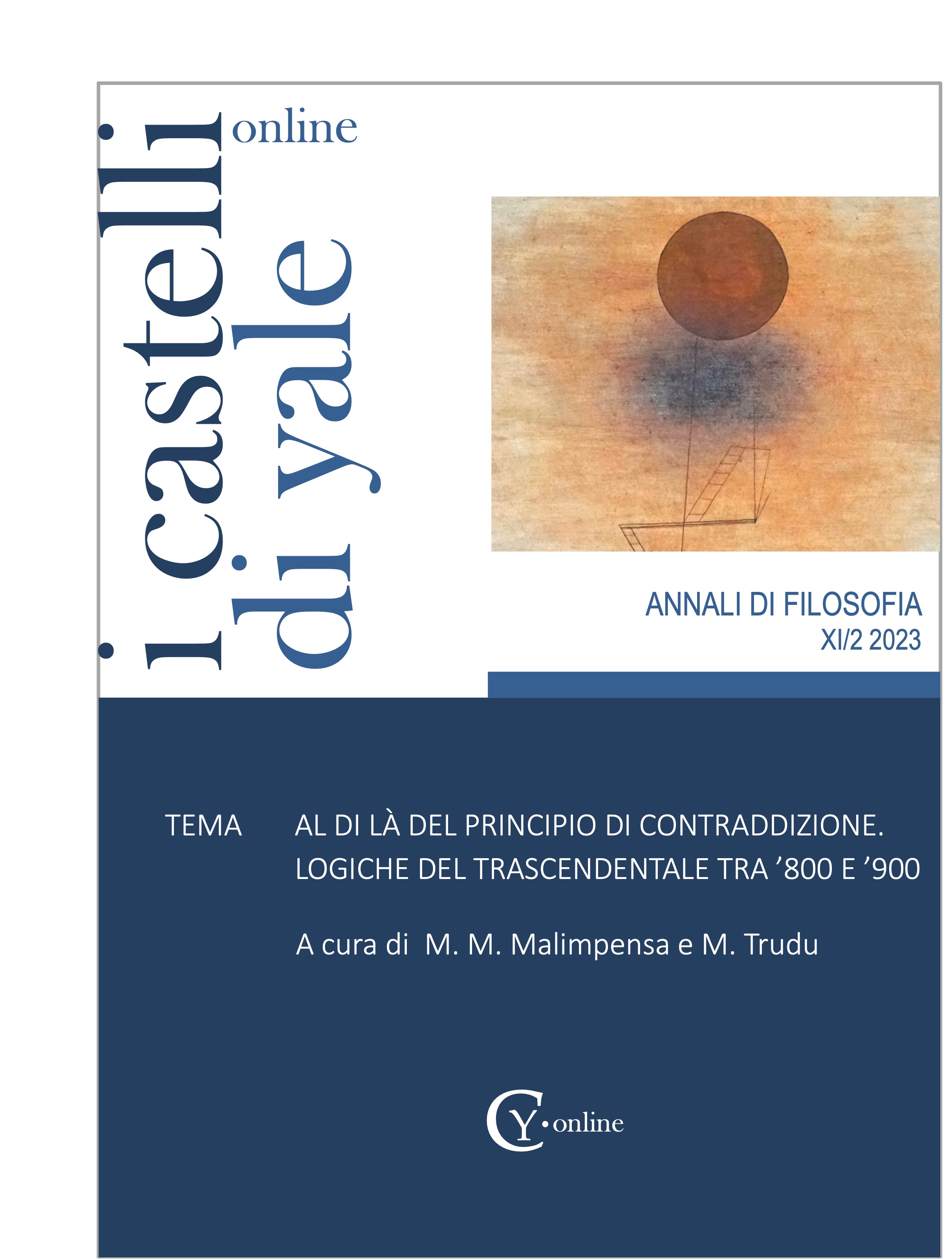Il sapere e l'irrazionale: la "logica della filosofia" di Emil Lask
DOI:
https://doi.org/10.15160/2282-5460/2855Keywords:
Transcendental logic, Formal logic, Difference, Differentiation, Quasi-transcendentalAbstract
Lask's thought represents a milestone within the developments of transcendental philosophy between the nineteenth and twentieth centuries, including the relation between transcendental logic and formal logic. Compared to Classical German Philosophy (Lask takes Kant and Fichte as his points of reference, but then also Hegel), Lask's philosophy develops a new, unprecedented conception of difference that becomes not only the structure that holds together the different domains of knowledge, but also what enables knowledge itself to clarify its own conditions of possibility. Indeed, the "differentiation" of categories and materials, and not the assumption of their ideal unity, becomes the basis for understanding, on the one hand, a reality that turns out to be "irrational", irreducible to concept, and, on the other hand, the possibilities and limits of knowledge. In this sense, Lask's transcendental philosophy represents a fundamental step in the direction of a mature philosophy of difference, a philosophy of difference that Foucault and Derrida will define "quasi-transcendental".
Downloads
Published
Issue
Section
License
Copyright (c) 2024 Simone Furlani

This work is licensed under a Creative Commons Attribution-NonCommercial-NoDerivatives 4.0 International License.


